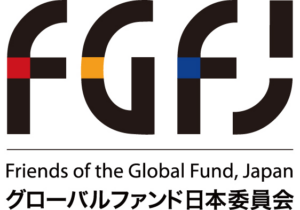![]() This was taken from the Global Fund’s blog “Voices” on March 8, 2013. For the original blog post, please click here.
This was taken from the Global Fund’s blog “Voices” on March 8, 2013. For the original blog post, please click here.
The people of Japan have consistently been there for disadvantaged people in other parts of the world.
The resolve of the Japanese people to help the rest of the world is unequivocal. The contribution Japan made in 2012 was the highest annual amount that the country had made in 10 years of remarkable support to the fight against HIV and AIDS, tuberculosis and malaria through the Global Fund.
The Global Fund traces its roots to Japan, where a summit of G8 nations meeting in Okinawa in 2000 called for the creation of such a global financing organization.
Japan’s commitment is a great encouragement to me. Despite a worsening economic crisis, many people continue to support programs that can help those in greatest need.
The commitment highlighted a fundamental human trait: that we give, not because we have excess, but because we recognize that by sharing what we have, we can transform the lives of many even as we enrich ours with the fulfillment that comes with giving.
Japan has been one of the greatest supporters for the Global Fund. In the ten years that Japan has supported the Global Fund, we have achieved a great deal. Global Fund-supported programs currently provide AIDS treatment for 4.2 million people, out of a total of 8 million people that are receiving treatment worldwide. These programs have also provided treatment to 1.7 million pregnant women to prevent the transmission of HIV to their unborn children.
Tanzania, for example, is working to reach 96% of pregnant women with HIV testing and counseling, and to provide treatment to over 346,000 HIV positive pregnant women to prevent HIV transmission to their babies by 2015.
The Japan International Cooperation Agency has been an invaluable partner to the Global Fund, providing technical assistance and strengthening capacities of program implementers, especially in Africa.
Through our efforts and the work of our partners across the globe, global health initiatives are steadily transforming the world. AIDS-related deaths have decreased worldwide from 2.1 million per year in 2001 to 1.7 million in 2011. There were more than 700,000 fewer new HIV infections globally in 2011 than in 2001.
In many ways, we have turned the corner in the fight against these diseases. This is a feat that was inconceivable just ten years ago.
We have a historic opportunity to get HIV, tuberculosis and malaria under control. We are immensely grateful to the Japanese people for the role they have played towards this end.
To finish the job, we need to keep doing what we have been doing while meticulously integrating the many lessons we have picked along the way.
To complete the work we started, to avoid losing ground to these diseases, we have to remain focused. If we do not continue investing in these endeavors, we may lose the gains we have made in the last ten years. We cannot stop now.
We still need a good deal of resources to control the maladies. We need a Big Push to defeat these diseases. We are confident that Japan will continue to offer us the support we need to complete the mission.
